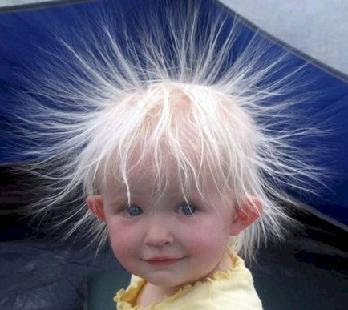Can Powerful Emotions Kill You? The Negative Health Effects Of Anger, Loneliness, Stress, Sadness, And Shock…
Though feelings are powerful forces and an inescapable part of life, they can have a pretty significant effect on your health — especially if they’re negative emotions. Below are five common emotions that can have a negative impact on your well-being unless they’re coped with properly.

Anger
Studies have shown that anger can actually lead to heart attacks and an increased risk of cardiovascular problems — perhaps not surprisingly, as a sudden burst of anger can cause over-the-top surge of chemicals throughout the body, like adrenaline and noradrenaline. During a bout of anger, the brain’s amygdala overreacts; blood rushes to the frontal lobe, the area in charge of reasoning. This is why anger can often be blinding — and can lead to you throwing a phone at the wall.
But along with this impaired judgment, anger can also bring with it dangers to your cardiovascular system. There are a “number of physiological changes” occurring in our bodies when we get angry. Further research is needed to figure out exactly how anger can have such a strong impact on our health. But what researchers found was that two hours after an angry outburst, people had nearly a five -fold increase in heart attack risk, and a three-fold risk increase for stroke. “Although risk of experiencing an acute cardiovascular event with any single outburst of anger is relatively low, the risk can accumulate for people with frequent episodes of anger,” Dr. Elizabeth Mostofsky, researcher at the Harvard School of Public Health and a lead author of the study.

Loneliness
Loneliness may also be just as dangerous as a sudden outburst of anger. It tends to be a long-term condition, like depression, and is a risk factor for early death, according to Dr. John Cacioppo, a psychologist at the University of Chicago and author of a study about loneliness. Feeling lonely could increase your risk of premature death by 14%, he found. “Loneliness is a risk factor for early death beyond what can be explained by poor health behaviors,” Cacioppo told USA Today. “Poor quality of sleep hastens aging.”
It’s important to maintain social relationships with friends and family, and to even make small talk with new faces every once in a while. Older people who are lonely tend to have higher levels of stress, and less of an ability to adapt to difficult situations if they don’t have anyone to lean on. Loneliness can increase levels of stress hormones in the body like cortisol, affects sleep quality, and increases blood pressure. Isolation and solitude can also weaken your immune system. So maintain your friendships and social bonds; it will do you good.
Stress And Anxiety
It’s almost common knowledge at this point that stress has a huge negative effect on our bodies. Stress almost always manifests itself through physical symptoms: migraines, grinding teeth, lightheadedness, nausea, exhaustion, heart palpitations, insomnia, and a decreased or increased appetite. Constantly worrying and carrying a burden of stress has been linked to early aging, high blood pressure, chest pain, and a weakened immune system. People who are stressed are less likely to take care of themselves, sleep and eat properly, and thus are more likely to get sick.
According to the American Psychological Association, stress is a complicated condition that is closely tied to a myriad of health issues:
Stress can make existing problems worse. In one study for example, about half the participants saw improvements in chronic headaches after learning how to stop the stress-producing habit of “catastrophizing,” or constantly thinking negative thoughts about their pain. Chronic stress may also cause disease, either because of changes in your body or the overeating, smoking and other bad habits people use to cope with stress. Job strain – high demands coupled with low decision-making latitude — is associated with increased risk of coronary disease, for example.
Learning how to reduce your stress could be one of your best investments — exercise, eating healthy, and giving yourself “me” time as well as a chance to relax and unwind will go a long way.
Shock
Shock, or trauma, can cause both short-term and long-lasting consequences on both your mind and body. Shock typically involves an unexpected situation that throws an unprepared person off their feet, and leaves them unable to cope or react properly. Psychological trauma occurs in the brain, and can actually change the structure of the brain in the area where the frontal cortex, emotional brain and survival brain converge. Physical symptoms that occur due to shock or post-traumatic stress disorder (PTSD) include sleeping and eating issues, sexual dysfunction, lack of energy, and chronic pain.
Sadness
It’s called heartbreak for a reason. When you’re experiencing deep grief or sadness, it takes a toll on your health, too. One study from St. George’s University of London found that it is actually possible to die of a broken heart, bereavement increases your risk of heart attacks or stroke by nearly double after a partner’s death, the researchers discovered. “We often use the term a “broken heart” to signify the pain of losing a loved one and our study shows bereavement can have a direct effect on the health of the heart,” Dr. Sunil Shah, is a senior lecturer in public health at St. George’s, said in a press release.
How does psychological stress affect people who have cancer?
People who have cancer may find the physical, emotional, and social effects of the disease to be stressful. Those who attempt to manage their stress with risky behaviors such as smoking or drinking alcohol or who become more sedentary may have a poorer quality of life after cancer treatment. In contrast, the people who are able to use effective coping strategies to deal with stress, such as stress management techniques, have been shown to have lower levels of depression, anxiety, and symptoms related to the cancer and its treatment. However, there is no evidence successful management of psychological stress improves cancer survival.
Evidence from experimental studies does suggest that psychological stress can affect a tumor’s ability to grow and spread. For example, some studies have shown when mice bearing human tumors were kept confined or isolated from other mice—conditions that increase stress—their tumors were more likely to grow and spread (metastasize). In one set of experiments, tumors transplanted into the mammary fat pads of mice had much higher rates of spread to the lungs and lymph nodes if the mice were chronically stressed than if the mice were not stressed. Studies in mice and in human cancer cells grown in the laboratory… have found… that the stress hormone norepinephrine, part of the body’s fight-or-flight response system, may promote angiogenesis and metastasis.
In another study, that women with triple-negative breast cancer who had been treated with neoadjuvant chemotherapy were asked about their use of beta blockers, which are medications that interfere with certain stress hormones, before and during chemotherapy. Women who reported using beta blockers…. had a better chance of surviving their cancer treatment without a relapse than women who did not report beta blocker use. There was no difference between the groups, however, in terms of overall survival.
Although there is still no strong evidence that stress directly affects cancer outcomes, some data do suggest that patients can develop a sense of helplessness or hopelessness when stress becomes overwhelming. This response is associated with higher rates of death, although the mechanism for this outcome is unclear. It may be that people who feel helpless or hopeless do not seek treatment when they become ill, and also give up prematurely on or fail to adhere to potentially helpful therapy, engage in risky behavior such as drug use, or do not maintain a healthy lifestyle, resulting in premature death.
Also Tom Laughlin discusses the 6 psychological factors that predispose one to develop cancer, from his book,”The Psychology of Cancer.” Discovering how these factors work in one’s life, and then transforming them, is essential for the cancer patient, and it is also an incredible tool in the prevention of cancer. This is a must for every cancer patient and for those who are afraid of getting a cancer.
For over three decades, John Kehoe has earned worldwide recognition for his pioneering work in the field of Mind Power. He has lectured on every continent and his seminal book, Mind Power Into the 21st Century, has topped the bestseller lists in over a dozen countries. His teachings relate directly to the powers held within every person to conclusively shape his or her destiny
THE WHAT? SERIES: is a non-profit cancer education web series presenting honest questions and answers. That are constructed in the hope of removing some of the fears around cancer, empowering the viewer with knowledge and understanding. In this series you will be introduced to cancer fighters, medical professionals and caregivers from all walks of life sharing their experiences and their understanding in the support of others.
This program is an extension of the feature film WHAT THE F@#- IS CANCER AND WHY DOES EVERYBODY HAVE IT?. Both created by filmmaker Allison W. Gryphon in response to her April 2011 stage 3a breast cancer diagnosis. THE WHAT? SERIES is brought to you by THE WHY? FOUNDATION.
We (YouAreCreators) created this channel to share one of the greatest secrets of the universe, and the secret is, we literally create our reality! (Quantum Physics now proves this) We are all governed by a set of Universal Laws, and these laws created by GOD, to aid us in creating a life we desire. One of these laws known as the “Law Of Attraction” or the Law of “Reaping and Sowing“.
https://www.youtube.com/watch?v=Xp02R9fgSKI




